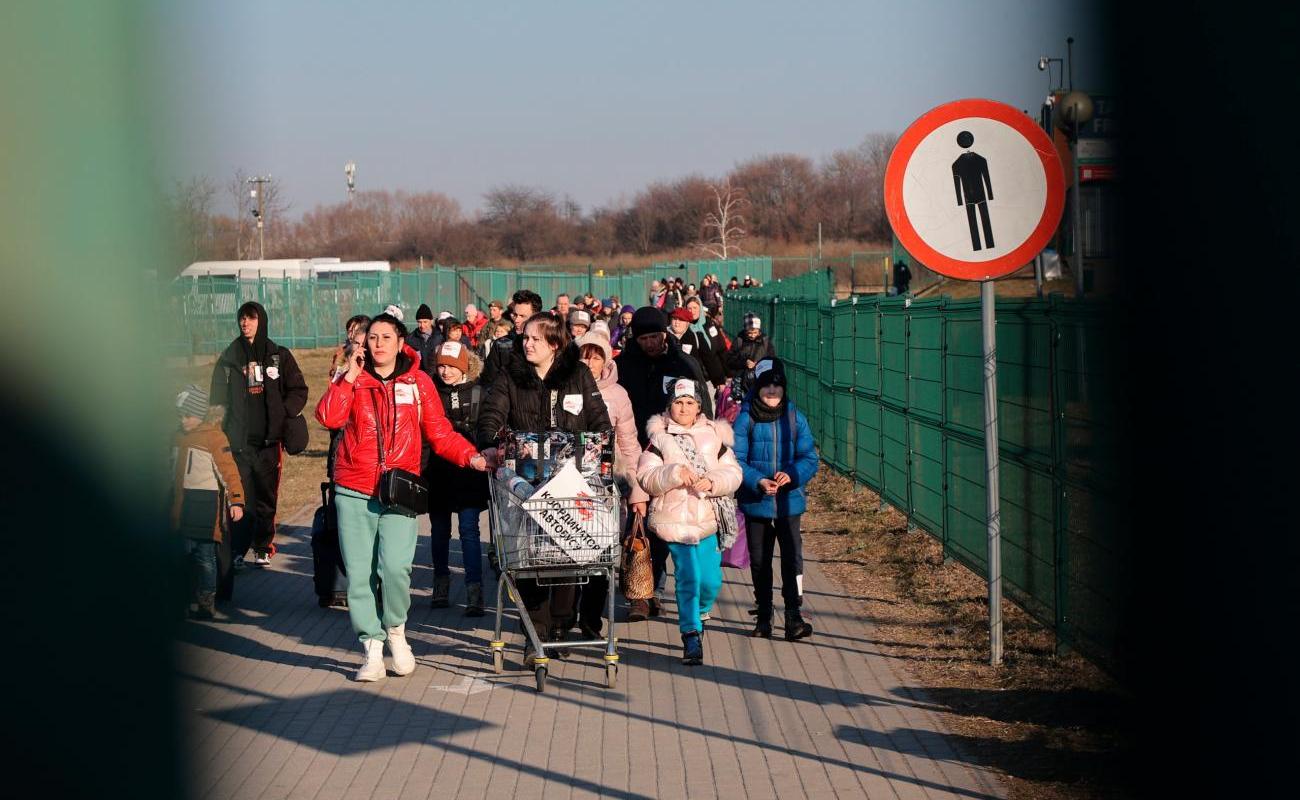Dehumanization of Ukrainians. How Russia Works with Ukrainian Refugees in Europe

The most active wave of information is visible in March and coincides with the largest wave of migrations.
At the very beginning of the war, Russians conducted an informational-psychological special operation aimed at discrediting and partially dehumanizing Ukrainians through the refugee issue. Poland and Moldova were central points for spreading this narrative. Although the topic was "international" - besides in Russia and Ukraine, it was also distributed in Italy, Germany, Poland, Israel, and other countries. This is stated in a study by the non-governmental organization Cat-Ua, which analyzed 8.2 million messages posted on platforms such as Facebook, Instagram, Twitter, YouTube, Telegram, Vkontakte, TikTok, and Odnoklassniki in Ukrainian and Russian from the beginning of the war in Ukraine until August 31, 2023.
It has been determined that Russians promoted messages about the aggressiveness and greed of Ukrainians, worsening security situations in "receiving countries," and seemingly strange, inadequate demands by Ukrainians. The theme was presented through personalized stories: bloggers, "people's speakers" were involved. Even official racist propagandists referred to these stories, as if they had heard them from direct participants.
In the first month of the war, in March 2022, a large wave of reports was recorded, which apparently were prepared in advance for the campaign. The main messages were: "Ukrainians behave loudly in Moldova, show their money, annoy the local population," "Moldova is expelling refugees," "Ukrainians are taking jobs in Poland," "they break laws in Germany," "Ukrainians have brought venereal diseases to Estonia," etc.
Researchers at Cat-Ua assume that the purpose of such a narrative at the beginning of the war was to encourage Ukrainians to go to Russia rather than Europe, where they, they say, "are not liked." And also - to create discord between the local population and Ukrainians and convince them that there will be a humanitarian crisis because of Ukrainians.
On social media, bots promoted the idea that Moldova suffered the most because of Ukrainian refugees, which may indicate special attention from the Russian Federation towards this country.
The most active wave of information was observed in March 2022 and coincided with the largest wave of migrations. Sources are usually opinions of individual participants in events. Interestingly, for impoverished Moldova, versions of Ukrainian wealth are being spread, while for Germany, a law-abiding country, narratives of aggression and violation of laws by refugees are being spread.
The Russian narrative about "uneducated refugees" has become popular on Facebook as well. Users from Ukraine are widely spreading calls to behave decently abroad: "We didn't come here for vacation."
"Such texts first appeared in Polish publications. They are often synchronized in Polish and presented as a cry of the soul of both Ukrainians and Poles. At the same time, Poles themselves spread this appeal and debunked Russian propaganda about ungrateful refugees," the study notes.
In Germany, the Russian diaspora actively joined in, discrediting Ukrainian refugees through their resources, especially YouTube channels like "Voice of Europe," portraying them as ungrateful, sloppy, irresponsible, scum, and a burden to all.
Sometimes the messages spread by Russians contradicted each other, but that didn't stop manipulators. Posts simultaneously appeared claiming that Ukrainians don't want to work and are taking jobs from the local population, while the wealthy depend on social benefits. Russians were alarmed by the prospect of payments being cancelled or even having to return money already received. In Poland, narratives were sometimes promoted that the authorities treat Ukrainians better than their own citizens.
Regarding other topics, the study showed that racist narratives about Ukraine are also promoted through pseudo-patriotic and pseudo-Ukrainian users. This was particularly evident during the Russian campaign about the alleged resale of Western weapons by Ukraine. These messages were also relayed by blogger Jury Shvec, as well as bloggers intentionally showing support for one of Ukraine's patriotic political factions. The same information campaign about "arms resale" also involved Russian Telegram channels pretending to be Ukrainian, such as "Resident" and "Legitimnogo."
Statements from politicians in other countries, especially Natalia Gavrilita from Moldova, became elements of the campaign. "Propagandists were 'assisted' by congresswoman Victoria Spartz, triggering one of the bursts of such mentions," the researchers note.
